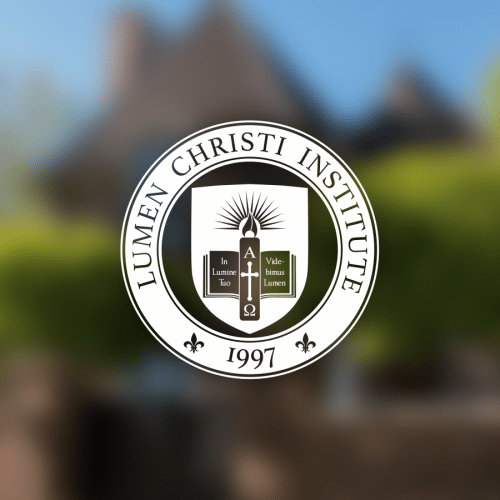Nicklin Fellows Program for Undergraduates
The Nicklin Fellows are the recipients of a competitive, application based fellowship for undergraduate students. Nicklin Fellows are granted exclusive access to research and development grant funds to pursue their intellectual interests. Grants can be used to pursue projects like the following:
- Organize a reading group
- Bring a speaker to campus
- Organize a movie night
- Develop and plan future Fundamental Questions seminars
- Write a paper for a journal
- And more
The purpose of the Nicklin Fellows is to support undergraduate students in the pursuit of their personal academic & intellectual interests, especially those related to existential questions of being. The Nicklin Fellowship cultivates robust intellectual friendships rooted in a common love of truth, beauty, and goodness. Student projects should adhere to the guiding principles (see below) of the Lumen Christi Institute.
Nicklin Fellow Prerequisites
- attend two sessions of a Fundamental Questions seminar in Fall 2024
- attend one other Lumen Christi event per academic year
- be an undergraduate student at the University of Chicago
Nicklin Fellows Application Process
Send an email to dstrobach@lumenchristi.org, cc’ing awalker@lumenchristi.org. Include a one-page cover letter that explains:
- Who you are
- What LCI programs you have attended
- Why you want to become a Nicklin Fellow
Also include a CV/resume, and responses to the following questions (a maximum of 150 words per response):
- Which Fundamental Questions seminar did you attend? What did you get out of it?
- What do you think is worth thinking about?
- Give us a couple ideas for how you might spend your Nicklin fellowship money. (This is not a test, nor are you obliged to use these ideas when you receive your fellowship). Please remember to calibrate these suggestions to the guiding principles of the Lumen Christi Institute.
Applications should be submitted by the end of the day on December 15th.
Guiding Principles
Program proposals should…
-
Affirm the intellectual life as good in itself
-
Ask questions animated by the principle that “all knowledge forms one whole”
-
Transcend the ideological / political divide (i.e., programs should not be partisan in nature)
-
Welcome religious perspectives as part of the intellectual life (i.e., programs need not be theological in nature but conversations should be open to religious insights)
-
Nurture friendships, to support the pursuit of truth, beauty, and goodness (i.e., programs should have a social component)
